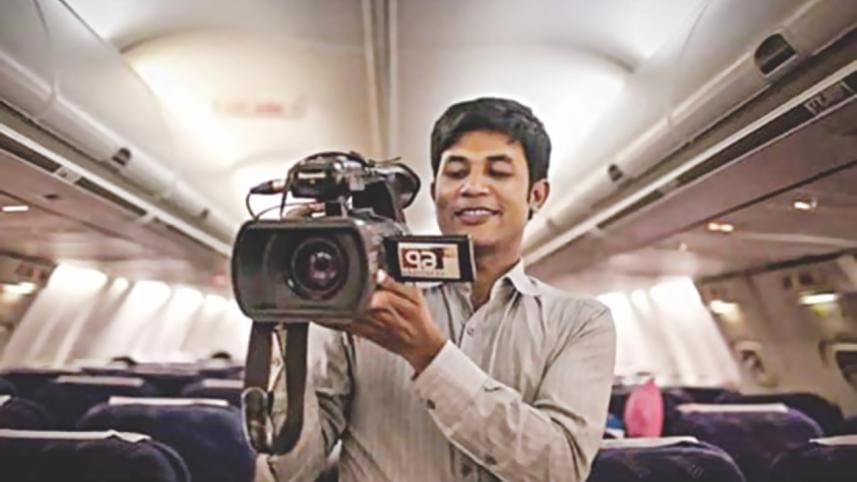Tragic death of a journalist

At the end of last month, Ali Hossain Ripon had gone deep inside Thanchi upazila of Bandarban to cover the months-long food crisis that struck the impoverished people of the remote area.
The videographer of Ekattor TV worked hard from behind the scenes and presented the viewers the powerful footages of the starving people. Not even in his wildest dream had he thought he would be infected with malaria in Bandarban, one of the malaria endemic hilly districts in the country.
But Ripon, 34, indeed got cerebral malaria and died of it at a city hospital early hours yesterday, the private TV said.
He had been under treatment at Bangabandhu Sheikh Mujib Medical University since Tuesday. He was first admitted to the Coronary Care Unit and then shifted to the Intensive Care Unit when his condition worsened.
He is survived by his mother and three brothers.
His colleagues said he was planning his marriage after the Eid-ul-Fitr.
They said that after returning to Dhaka early this month, Ripon got a fever. Still he continued to work till June 16.
He then took treatment at Rafiza Hospital in Keraniganj, where he was from.
Contacted, Dr Wahiduzzaman, who runs the hospital, said Ripon went to the outdoor section on June 18 with a complaint of fever and told him that he was taking suppository.
"I measured his fever, but did not find it to be high,” he claimed.
Upon questioning, Ripon told him that he recently visited Bandarban.
"I asked him to do a test and he did it. The report was negative and I prescribed him Paracetamol and Losectil. I also told him to take an antibiotic course if he still felt fever," said Wahiduzzaman.
He claimed that he also advised Ripon to do a test from Dhaka and return to him. “But he did not come to me.”
As his condition did not improve, Ripon was taken to the BSMMU, colleagues said.
He was buried at his village home in Atibazar after Zohr prayers yesterday.
Death in malaria these days is rare given the “most modern drugs” available in Bangladesh, said Dr AKM Shamsuzzaman, director (disease control) of the Directorate General of Health Services.
The treatment against malaria is so effective now that nine people died of it last year when 39,820 cases were detected. So far this year, some 5,500 cases have been detected and six people died, including Ripon, he added.
Malaria is a parasitic disease, transmitted by infected female Anopheles mosquitoes. It affects blood circulation and then brain as a result of complication.
Usually, the symptoms such as high fever, fatigue, vomiting and headache develop not before nine days of the bite. But patients must visit a physician within 24 hours of developing the symptoms to avoid complication. The risk of fatality increases with time.
“If anyone visits a malaria endemic area, he should do a blood test for malaria first thing,” Shamsuzzaman told The Daily Star last night.
The National Malaria Control Programme under the health ministry has a 24-hour hotline (01787-691370) for assistance.
 For all latest news, follow The Daily Star's Google News channel.
For all latest news, follow The Daily Star's Google News channel.
Comments